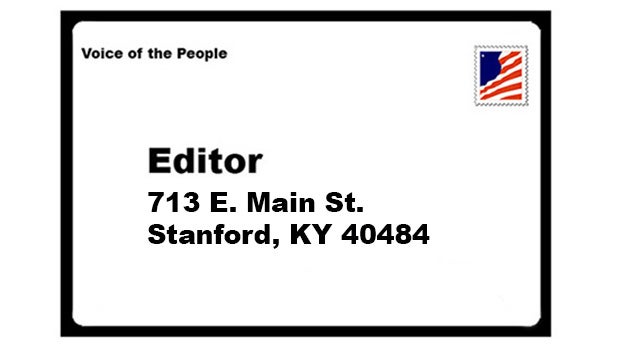Charter schools deserve a chance in Kentucky
Published 11:27 am Thursday, January 9, 2020
|
Getting your Trinity Audio player ready...
|
By William McCann
Guest columnist
The first application for a charter school has been rejected. The Bevin-appointed state board of education has been ‘fired’ and replaced. Wayne Lewis, the former commissioner of education, is now living and working in Tennessee. Current and retired educators are running for the state legislature.
So now is the time to formally adopt a funding mechanism and move forward with charter schools in Kentucky!
Yes. I know that such a proposal is counter-intuitive. Why, if the other side is routed, should the winners concede anything? Well, eventually today’s leaders will lose or retire and charter schools will become a fact of life.
Why not take that into account and try to integrate such schools into Kentucky’s system of education in ways that benefit students without costing educators their jobs and school systems money for charters that do not benefit students?
According to Arianna Prothero in Education Week, “[a] charter school is a tuition-free school of choice that is publicly funded but independently run.” Furthermore, “[i]n exchange for exemptions from many of the state laws and regulations that govern traditional public schools, charters are bound to the terms of a contract, or ‘charter,’ that lays out a school’s mission, academic goals, fiscal guidelines, and accountability requirements.”
Proponents of charters, including both former Gov. Bevin and Mr. Lewis, claim that such schools provide a real opportunity for parents to choose the best educational situation for their child (or children). In other words, charter schools provide educational choices for parents who otherwise would not have them.
That has a logic that appeals to many people (parents and grandparents especially) who are frustrated at the lack of opportunities for many students who are poor, of color, or simply struggling in local schools.
Opponents of charter schools claim that such schools have problems. For example, Peter Greene in a March 2019 Forbes magazine article points out that since 1994 “roughly $1 billion [in federal funding] has been lost to fraud and waste in the charter school sector.” Among the reasons for such fraud and waste cited by Greene are that some “charters never opened or closed quickly,” lack of supervision from the US Department of Education, and management issues.
According to the Education Week article, only about six percent of America’s elementary and secondary students are enrolled in charter schools and most of those schools are in urban areas.
So it might be easy to dismiss charter schools as unlikely to affect most Kentucky students and leave the issue alone until it comes up in a future administration. Instead, I’d encourage the governor, the state board of education and the legislature to address the issue sooner rather than later and work together to make a future system of charter schools one that will benefit the state’s students, administrators, and teachers.
There are some charter schools that have shown success. Adam Ozimek, in a January 2015 article in Forbes, reported that “some charter schools appear to do very well, and on average charters do better at educating poor students and black students. If the same evidence existed for some policy other than charter schools, I believe this would be the conventional wisdom.”
I’m skeptical at best of charter schools; I have taught in public schools, served on a school council, and been a school administrator.
But the school choice argument and the success of at least some charter schools seem to ensure that charter schools will eventually be back on the legislative agenda. Given that inevitability I suggest that charter schools be put in place in Kentucky so long as they meet the following criteria:
- Charter Schools must be founded using ONLY private funds and succeed for a period of at least five years before any public funds (or regulatory exemptions) are provided in support of those schools
- “Success” is to be defined as educating all of a charter school’s students at levels equal to or in excess of the standards of success applied to all of Kentucky’s public (non-charter) schools and classifications of students.
According to the legislation passed in 2017, a Kentucky charter school is to be a private non-profit that will receive public funding (and freedom from regulations). However, before it receives any public funding or regulatory exemptions it first ought to have to demonstrate its ability to succeed in Kentucky, working with Kentucky students.
As a new business start-up, the charter school should have to demonstrate that it is successful. Certainly, no investor would be supportive of a start-up business that had a business plan but no experience in Kentucky.
The same should be true of any charter school. And if charter schools succeed under such circumstances then it seems reasonable that they are encouraged and financially supported in this state.
William McCann lives in Winchester. His column was originally published by Kentucky Forward.




